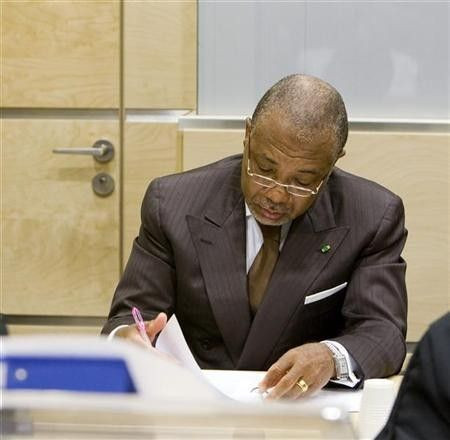Taylor lawyers to use US cables in court challenge

Defence lawyers for former Liberian President Charles Taylor, on trial for war crimes, won the right to use leaked U.S. cables as evidence to challenge the Sierra Leone war crimes court's independence and impartiality.
On trial at the Special Court for Sierra Leone, Taylor denies all 11 charges of instigating murder, rape, mutilation, sexual slavery and conscription of child soldiers during wars in Liberia and Sierra Leone in which more than 250,000 were killed.
Both the prosecution and defence have already finished presenting their evidence, but the court ruled in favour on Thursday of a defence motion seeking to re-open its case for the limited purpose of admitting into evidence two U.S. cables.
One of the diplomatic cables leaked by WikiLeaks last month contained comments made by a U.S. ambassador warning that if Taylor was acquitted or given a light sentence, his return to Liberia could tip the balance in a fragile peace.
The international community must consider steps should Taylor not be sent to prison for a long time. We should look at the possibility of trying Taylor in the United States, the U.S. ambassador to Liberia, Linda Thomas-Greenfield, wrote in a March 10, 2009 cable.
In their filing, defence lawyers for Taylor said the cables raise grave doubts about the independence and impartiality of the Special Court's prosecution of Charles Taylor.
They added that the cables support the defence position that the prosecution of Mr. Taylor is political and his indictment was deliberately selective.
© Copyright Thomson Reuters {{Year}}. All rights reserved.





















